“World War II: Felix Hall Lynching – FBI Files, Articles, Historical Records” has been added to your cart. View cart
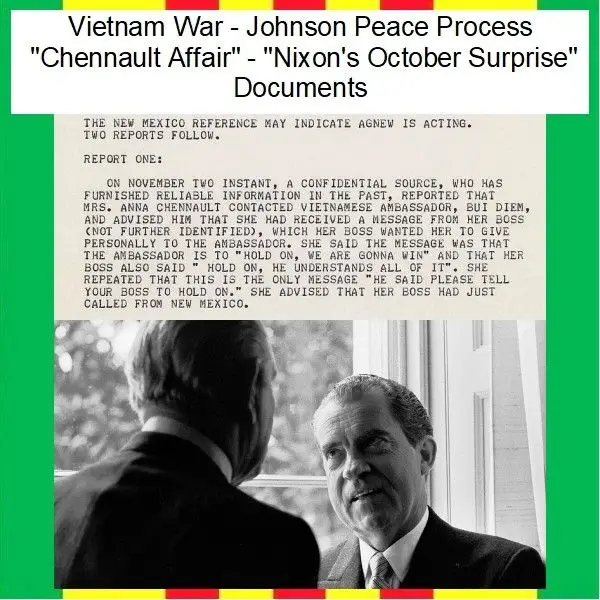
Vietnam War: Chennault Affair and Nixon’s October Surprise
$19.50
Category: War Files
Tags: Chennault Affair, Nixon, Vietnam War
Description
The Chennault Affair: Nixon’s October Surprise
October 1968 (Mid to Late):
- South Vietnamese Agreement: President Thieu of South Vietnam repeatedly agrees to a bombing halt as part of potential peace talks.
- Nixon Campaign Involvement (Initial): Actions by supporters of the Nixon campaign begin to impact the ongoing peace negotiations.
- Anna Chennault’s Communications: Anna Chennault, a Republican fundraiser, starts secretly communicating with the South Vietnamese Government to influence their approach to the peace process.
October 16, 1968:
- Presidential Candidates Briefing: President Lyndon B. Johnson holds a conference call with presidential candidates Richard Nixon, Hubert Humphrey, and George Wallace. LBJ briefs them on his stance regarding a Vietnam bombing halt and requests they avoid speeches that could hinder negotiations, promising to inform them of any breakthroughs.
October 22, 1968:
- Nixon’s Orders: Handwritten notes by Nixon aide H.R. Haldeman document a phone conversation with Nixon. The notes include Nixon’s orders to “Keep Anna Chennault working on” South Vietnam and, separately under “Bombing Halt,” his query: “Any other way to monkey wrench it? Anything RN [Richard Nixon] can do?” (This is interpreted by some as proof of Nixon’s cognizance of Chennault’s actions).
October 31, 1968:
- Bombing Halt Announcement: President Lyndon B. Johnson announces a halt to the bombing of North Vietnam, believing this will lead to peace talks to end the Vietnam War. At this point, Johnson is aware of the back-channel communications between Nixon campaign supporters, particularly Anna Chennault, and the South Vietnamese.
November 1, 1968:
- State Department Documents Begin: State Department document transcripts related to the Chennault Affair and the Johnson Administration’s peace plan efforts commence, extending through January 20, 1969.
November 2, 1968:
- Chennault’s “Hold On” Message (FBI Wiretap): FBI wiretaps record Anna Chennault phoning South Vietnam’s ambassador to the United States, Bui Diem, with the message: “hold on, we are gonna win.”
- FBI Cable Report: An FBI cable reports a source relaying Chennault’s message to Ambassador Bui Diem, stating it came from “her boss (not further identified).” The message, delivered personally by Chennault, was: “hold on, we are going to win” and “hold on, he understands all of it.” She repeated the message “please tell your boss to hold on,” and noted her boss had just called from New Mexico (where Republican vice-presidential nominee Spiro Agnew had recently campaigned).
- LBJ-Dirksen Conversation: LBJ speaks with U.S. Republican Senator Everett Dirksen. Johnson recounts intelligence on Chennault’s contacts, stating that South Vietnam had agreed to the bombing halt but actions by “friends involved,” including “your old China crowd,” had impacted negotiations. He quotes the FBI agent regarding Chennault’s call from “the boss” in New Mexico telling Thieu to “hold out” until after the election. LBJ warns Dirksen of the consequences of such contacts, and Dirksen states he will speak to Nixon.
- LBJ-Nixon Conversation (Recorded): An audio recording exists of a phone conversation between LBJ and Richard Nixon where LBJ recounts the intelligence he has received concerning Chennault’s contact with the South Vietnamese.
November 3, 1968:
- LBJ-Smathers Conversation: LBJ discusses reports with Nixon friend and conservative Democrat Senator George Smathers about John Tower and Anna Chennault encouraging South Vietnam not to join peace talks. LBJ expresses concern about the Nixon campaign’s comments and reviews negotiations and reports of Chennault’s contacts.
- LBJ-Nixon Conversation (Recorded): A phone conversation between LBJ and Richard Nixon, during which LBJ recounts the intelligence he has received concerning Chennault’s contact with the South Vietnamese.
November 4, 1968:
- Cabinet Discussion on Chennault: LBJ holds a conference call with Secretary of Defense Clark Clifford, Secretary of State Dean Rusk, National Security Advisor Walt Rostow, and LBJ aide Jim Jones. They discuss intelligence reports of Anna Chennault’s activities. Rusk and Clifford advise against making the information public, citing negative political implications for LBJ.
November 5, 1968:
- Election Day: Richard Nixon wins the presidential election.
November 12, 1968:
- FBI Investigation Request: LBJ asks Deputy Associate Director of the FBI Cartha “Deke” DeLoach to investigate calls between Spiro Agnew and Anna Chennault regarding efforts to influence South Vietnam not to join the Paris peace talks.
January 20, 1969:
- State Department Documents End: The collection of State Department transcripts related to the Chennault Affair concludes.
1973:
- Rostow Deposits X-File: After President Johnson’s death, Walt Rostow gives the sealed “X-File” (185-page White House file on the Chennault matter, containing various government agency files) to the director of the LBJ Presidential Library, with instructions for it to remain sealed for 50 years.
1994:
- X-File Opened: The LBJ Library opens the “X-File,” earlier than the 50-year instruction.
2008:
- LBJ Phone Conversations Released: Some audio recordings of President Johnson’s phone conversations related to the Chennault Affair are released by the LBJ Library.
January 2, 2017:
- Nixon Memo Revealed: The New York Times reports that historian John A. Farrell, a Nixon biographer, discovered a memo written by H.R. Bob Haldeman of a conversation with Nixon, which some interpret as proof that Nixon was cognizant of Chennault’s actions (specifically the “Keep Anna Chennault working on” and “monkey wrench” comments).
Cast of Characters
- President Lyndon B. Johnson (LBJ): The incumbent U.S. President during the events. He announced the bombing halt, was aware of the Chennault Affair, and considered the efforts “treason” but kept the information private to avoid damaging the presidency and admitting to government spying. He initiated investigations and discussed the matter with various officials and candidates.
- Richard Nixon (RN): The Republican presidential candidate who won the 1968 election. He denied involvement in the Chennault Affair but a memo from his aide H.R. Haldeman suggests he was aware of and actively supported Chennault’s efforts to influence South Vietnam.
- Anna Chennault: A Chinese-born Republican fundraiser and widow of U.S. Major General Claire Chennault. She was the central figure in the “Chennault Affair,” secretly communicating with the South Vietnamese Government to encourage them to delay peace talks, allegedly on behalf of the Nixon campaign.
- H.R. Bob Haldeman: A key aide to Richard Nixon. His handwritten notes from October 22, 1968, containing Nixon’s directives regarding Chennault and “monkey wrenching” the bombing halt, are a significant piece of evidence suggesting Nixon’s involvement.
- Bui Diem: South Vietnam’s ambassador to the United States. He was the recipient of Anna Chennault’s “hold on, we are gonna win” message.
- Walt Rostow: National Security Advisor to President Lyndon B. Johnson. He maintained the “X-File” on the Chennault matter and later deposited it with the LBJ Presidential Library.
- Everett Dirksen: U.S. Republican Senator. He was contacted by LBJ on November 2, 1968, regarding the Chennault Affair and promised to speak to Nixon about the matter.
- George Smathers: A conservative Democrat Senator from Florida and a friend of Richard Nixon. He discussed the reports of John Tower and Anna Chennault’s activities with LBJ.
- Clark Clifford: Secretary of Defense under President Johnson. He participated in the November 4, 1968, conference call and urged LBJ not to make the Chennault information public.
- Dean Rusk: Secretary of State under President Johnson. He also participated in the November 4, 1968, conference call and urged LBJ not to make the Chennault information public.
- Jim Jones: An aide to President Johnson. He participated in the November 4, 1968, conference call discussing Anna Chennault’s activities.
- Cartha “Deke” DeLoach: Deputy Associate Director of the FBI. LBJ asked him to investigate calls between Spiro Agnew and Anna Chennault.
- Spiro Agnew: Republican vice-presidential nominee in 1968. He had recently campaigned in New Mexico, where “her boss” was said to have called Chennault from, leading to speculation of his involvement. LBJ requested an investigation into his calls with Chennault.
- John Tower: A figure mentioned in discussions between LBJ and George Smathers as having encouraged South Vietnam not to join peace talks.
- Hubert Humphrey: The Democratic presidential candidate in 1968. He participated in LBJ’s October 16, 1968, briefing of presidential candidates.
- George Wallace: A third-party presidential candidate in 1968. He participated in LBJ’s October 16, 1968, briefing of presidential candidates.
- John A. Farrell: Historian and biographer of Richard Nixon, who, in 2017, discovered H.R. Haldeman’s memo, bringing new attention to the extent of Nixon’s possible involvement.
Related products
-
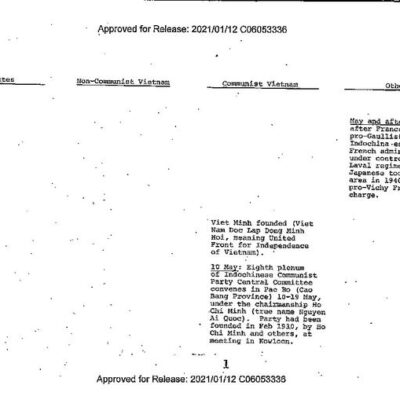
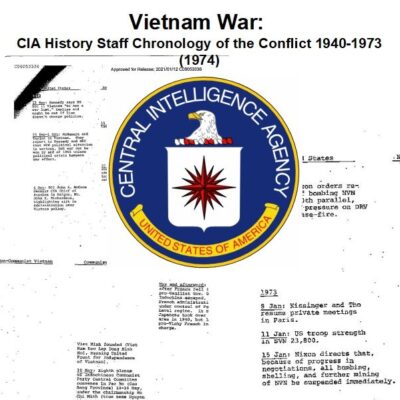
Vietnam War: CIA Chronology of the Conflict, 1940-1973 (1974)
$1.99 Add to Cart -
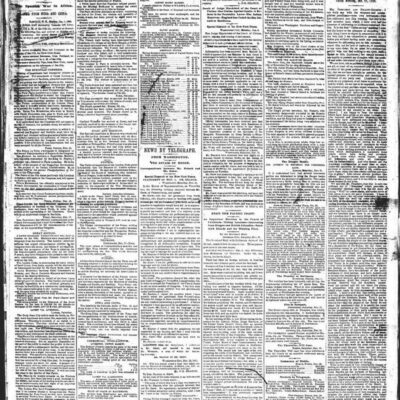
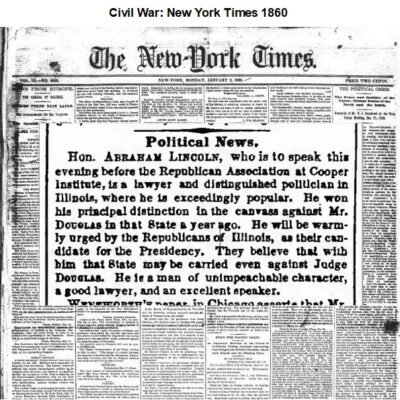
Civil War: New York Times 1860
$9.90 Add to Cart -
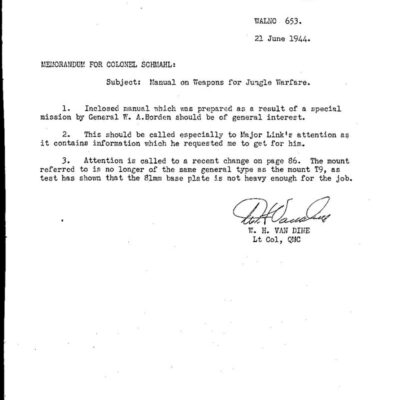
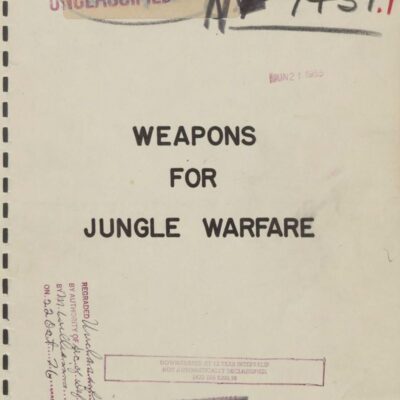
World War II Manual on Weapons for Jungle Warfare (1944)
$1.99 Add to Cart -
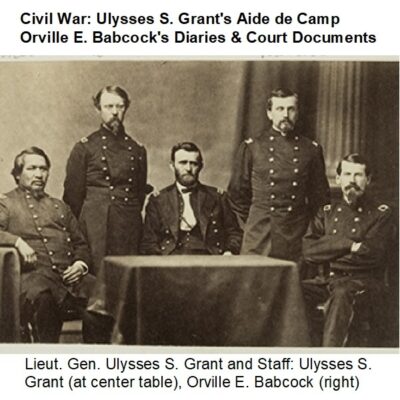
Civil War Ulysses S. Grant’s Aide de Camp Orville E. Babcock’s Diaries & Court Documents
$3.94 Add to Cart